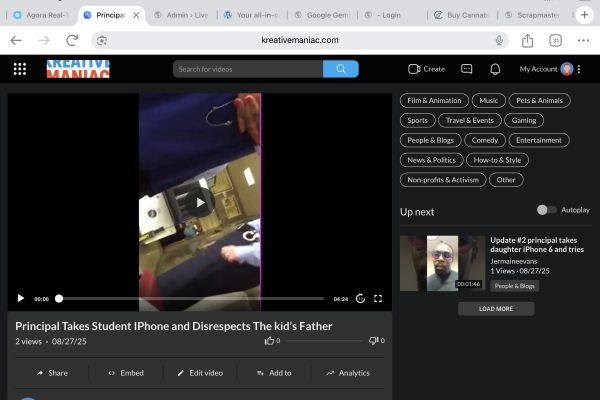Navigating School Policies: A Guide for Parents and Students
In an era where personal devices are central to our daily lives, the rules governing their use in schools have become a source of confusion and conflict. This guide is intended to provide general information about student rights, school authority, and the role of parents in these situations.
Understanding Student Rights and School Authority
The Fourth Amendment of the U.S. Constitution protects individuals from "unreasonable searches and seizures." This protection extends to students in public schools, but with an important caveat. The Supreme Court has ruled that due to the need for schools to maintain a safe and orderly learning environment, school officials do not need a warrant or "probable cause" to search a student or their belongings. Instead, they only need "reasonable suspicion."
Reasonable Suspicion: This means a school official must have specific, objective facts and rational inferences that lead them to believe a search will turn up evidence of a violation of school rules or the law. For example, if a teacher sees a student using a phone during class, they have reasonable suspicion to confiscate it.
Confiscation vs. Search: It's important to understand the difference. Confiscating an item—like a cell phone—is one thing. Searching its contents, such as looking through text messages or photos, is another. The legal standards for searching a phone's contents are often higher and depend on the specific circumstances.
The Role of School Policy
Most school districts have their own code of conduct that outlines rules for personal property, including cell phones. These policies are usually provided to students and parents at the beginning of the school year. They often specify:
When and where devices can be used: For example, phones may be banned in classrooms but allowed in hallways or at lunch.
Consequences for violations: This can range from a simple warning to a detention, suspension, or confiscation of the device.
The process for returning confiscated items: Policies often state that a parent or guardian must pick up a confiscated device and may even include a waiting period.
Parental Involvement and Communication
When a student’s property is confiscated, parents have a right to understand the situation.
Know the Policy: Familiarize yourself with your school district's code of conduct. Knowing the rules in advance can help you understand the school's actions and advocate for your child effectively.
Communicate with the School: If a device is confiscated, calmly contact the school administration to get a clear explanation of what happened and what the process is for getting the item back.
Advocate for Clarity: If you feel the school's policy is unclear or unfair, consider attending school board meetings or communicating with administrators to advocate for a change. Many schools are actively seeking to create policies that balance student privacy and the educational environment.
Navigating these situations can be challenging. By understanding the legal framework and school policies, and by maintaining open communication, parents and students can work with school officials to find a resolution that respects everyone's rights and ensures a productive learning environment.




